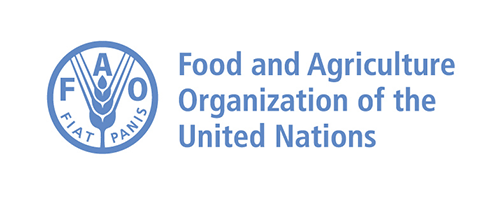The FAO Legal Office provides in-house counsel in accordance with the Basic Texts of the Organization, gives legal advisory services to FAO members, assists in the formulation of treaties on food and agriculture, for which the Director-General acts as Depositary, publishes legal studies and maintains a database (FAOLEX) of national legislation and international agreements concerning food and agriculture (including fisheries, forestry and water).
Members:
Resources
Displaying 15461 - 15465 of 15550Foreshore Protection Law, 1978.
This Law provides for the better protection of the foreshore. The law defines the foreshore as the lands within a distance not exceeding one hundred yards from high water mark, as the Minister may prescribe. The Law contains provisions on the prohibition to interfere with the foreshore, on restrictions upon structures on the foreshore. It provides also for the power to prescribe areas in which the erection of buildings is prohibited, and for drains to be covered and extended into the sea.
Government Ownership of Urban Lands and Extra Houses Proclamation No. 47/1975.
The Proclamation is divided into 7 Chapters: Introduction (I); Urban Lands (II); Urban Houses (III); Rent (IV); Cooperative Societies of Urban Dwellers (V); Powers and Duties of the Ministry (VI); General Provisions (VII). The Proclamation vests all urban lands in the Government (sect. 3).
Public Ownership of Rural Lands Proclamation No. 31/1975.
The Proclamation is divided into 6 Chapters: Introduction (1); Public Ownership of Rural Lands (2); Establishment of Associations for the Implementation of the Proclamation (3); Powers and Functions of the Minister of Land Reform and Administration (4); Communal and Nomadic Lands (5); General Provisions (6).The Proclamation declares all rural lands to be the collective property of the Ethiopian people and abolishes private ownership of rural land (sect. 3). Peasant Associations are in charge of the redistribution, cultivation, administration etc. of rural lands.
State Lands Act, 1962 (Act No. 125).
The Act provides for the acquisition of land in the national interest. Whenever it appears to the President in the national interest to do so, he may declare land to be required in the public interest. On publication of an instrument made for the acquisition, the land shall vest in the President on behalf of the Republic (sect. 1). The Minister may pay compensation or may offer land of equivalent value. Disputes that arise may be referred by the Minister to the Tribunal established under section 3 (sect. 4).
Rents (Stabilization) Act, 1962 (Act No. 109).
The Act provides for the stabilization of rents, dues, fees or royalties for grants of rights in certain lands and other purposes connected therewith (preamble).
Amended by: Rents (Stabilization) (Amendment) Act, 1963 (Act No. 168). (1963-03-22)


